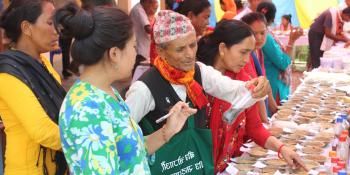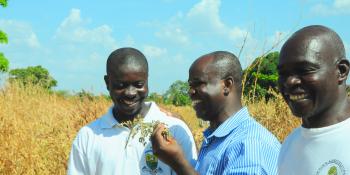Small countries, big hopes
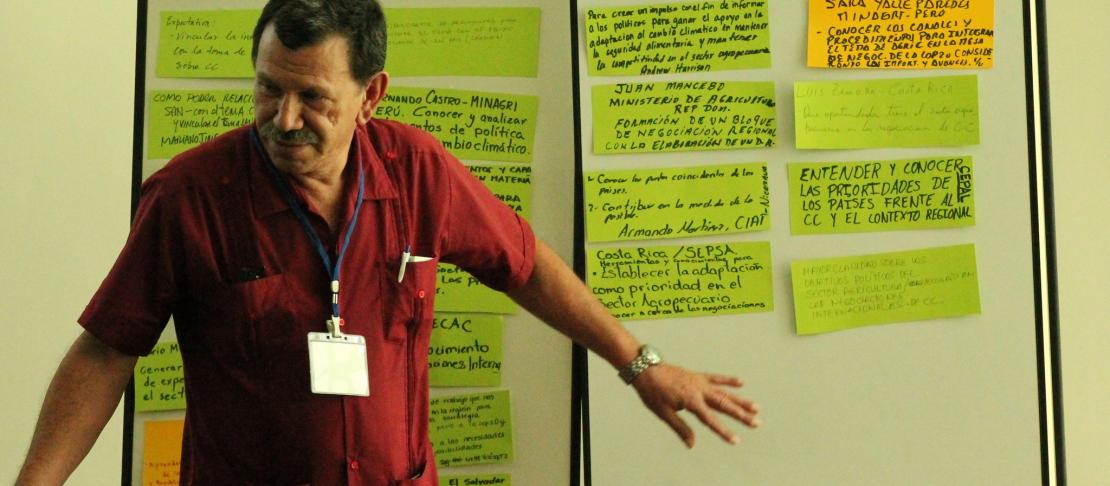
A training course for policy makers from various Central and South American countries dealt with the role of agriculture in international climate change negotiations.
The training course was kicked off with the following sentence:
We might be small countries, but we have great hopes for our contributions to the climate change negotiations these upcoming years.”
The workshop, Preparing the response to challenges and opportunities for agriculture in the international context of climate change, was organized by Bioversity International on behalf of CCAFS, the Economic Commission for Latin America (CEPAL), and the Central American Agricultural Council (CAC), which consists of the agricultural ministries of the region.
Policy makers were present from eight Latin American countries: Panama, El Salvador, Belize, Guatemala, Honduras, Dominican Republic, Peru, and Colombia. They received training on how to address the role of agriculture in international climate change negotiations. Until now, the role of the agricultural sector has been fairly marginal in UNFCCC and related negotiations. Usually, countries are represented by delegates from the ministries of foreign affairs and environment of each country. Agriculture should play a larger role in international negotiations. As stated by CEPAL’s Julie Lennox:
The climate is a global good; it’s crucial for food and agriculture. And smallholder farmers play a really important role in this.”
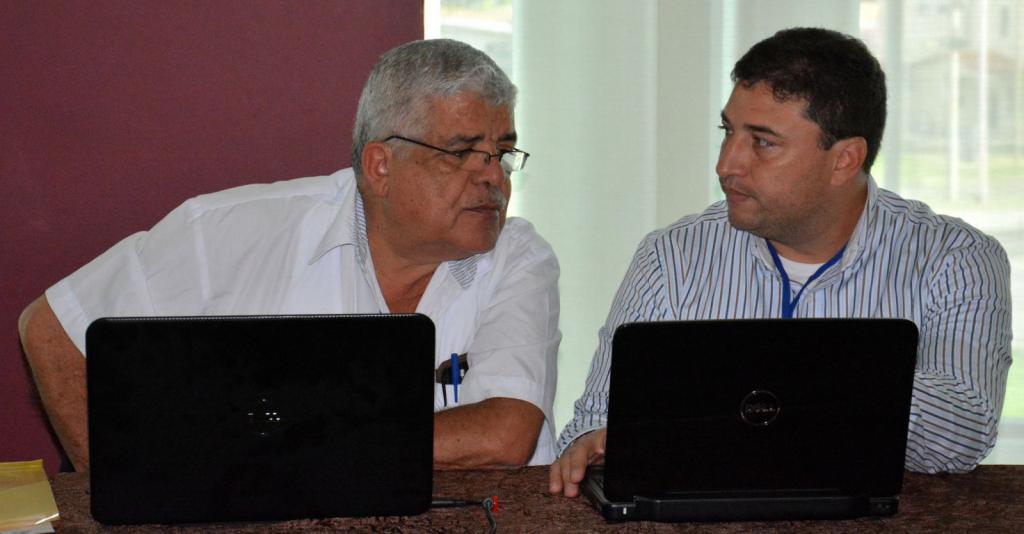
The workshop started with small presentations on why it is important to include agriculture in the international and national answers to climate change, given by Julie Lennox and Jaime Olivares (CEPAL), Jeimar Tapasco and Armando Martinez (CIAT) and Vesalio Mora (Bioversity International). These mini-presentations addressed economic aspects of mitigation and adaptation, the link between climate and food security, and showcased CCAFS science in the region.
Towards a future climate agreement
This part was followed by a session led by Augusto Castro about the historical background of the UNFCCC process and the role of agriculture and other land uses in these negotiations. He took us through the various steps of the negotiations the Kyoto protocol and the steps that have been set ever since to reach a post-Kyoto agreement. He put an emphasis on how the agricultural sector has been left out during the entire history of negotiations.
He showed that the interests of developing countries in the agricultural sector are related to sectorial adaptation and possible losses and damages due to extreme climate events. For example, the agro-exporting countries like Argentina and Brazil that pose a potential threat to international trade; the countries with intensive agriculture that are niche markets in agriculture mitigation such as Costa Rica and Uruguay; and developing countries with little agricultural trade that have little interest in the discussions on climate change mitigation.
Mr. Castro also presented some main action points by FAO for mitigation options towards a future climate agreement. The action points are the following: Stop changing land use; Harness the mitigation potential in livestock; Conserve peat lands; Harness the mitigation potential in rice; Harness the mitigation potential in small-scale agriculture; Harness the mitigation potential in aquaculture and fisheries; Harness the mitigation potential in chains.
However, these options may require further discussion in, amongst others, the Nationally Appropriate Mitigation Actions (NAMAs) in agriculture, agricultural intensification and the use of public sector resources.
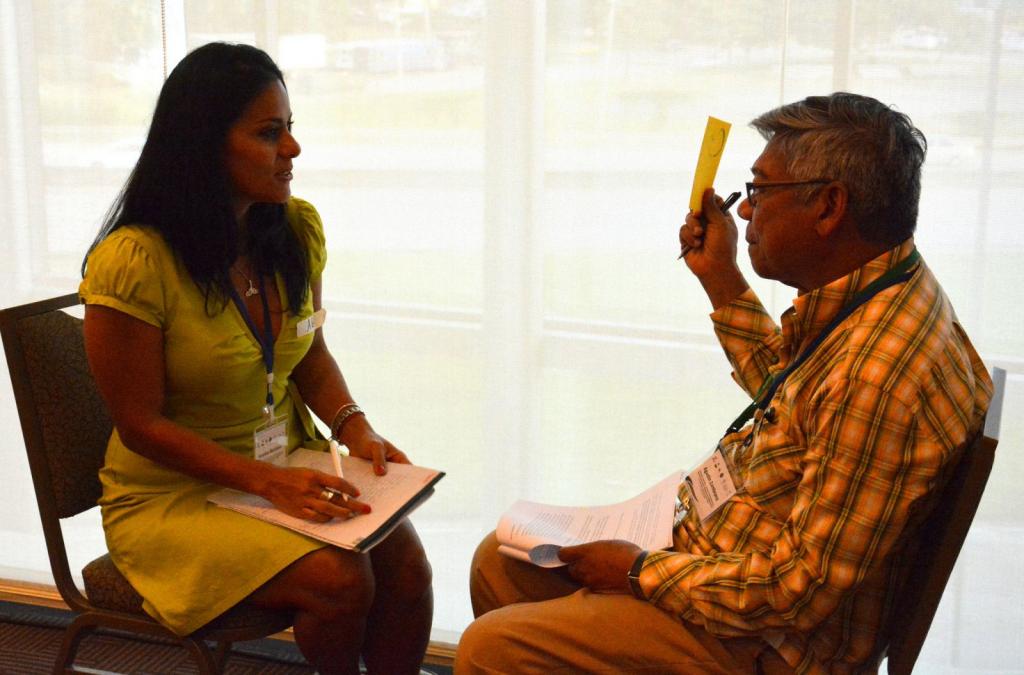
The presentation was focusing on the following question: We are already convinced that agriculture should be included in the negotiations, but how can we convince those that do not see the link?
First step: defining the objectives
After this, we listened to presentations on the history of the UNFCCC and the discussions on the role the agricultural sector plays in this process and the role they could play in the way to the future.
Ricardo Ulate (Conservation International) challenged the course participants on several fronts. He emphasized the importance of articulating a clear political objective before entering negotiations. He argued that this has been largely lacking in the region. What is needed is an integrated vision on land use policy, reaching across different sectors and with a clear focus on the multiple functions of landscapes for production, conservation, and food security. Mr. Ulate also reflected on his own engagement in the UNFCCC process, emphasizing the importance of the informal conversations that take place and the skills needed to be effective in international negotiations.
During his speech, Mr. Ulate mentioned some of the main obstacles policy makers face (or create) in the race to reach the so-called Sustainable Development Goals (SDGs), which flow into the National Development Plans (NDPs):
- Concerning the legal area, there is an absence of rules to truly operationalize international treaties; there is an overlap of competence (OT) with a simultaneous dispersion of powers (biodiversity, agriculture, environment), and there are regulatory gaps (carbon rights and options trading, carbon markets, planning, distribution benefits) and restrictions on scales of incentives.
- Furthermore, the institutional culture contributes to a loss of political space for redistribution of powers (jealousy); complex management styles of the hierarchs, technical officials, and media; procedural formalism and an overall ‘bare minimum’ work standard.
- Structurally seen, there is very little recognition of the rights of indigenous populations (territory, governance mechanisms); the adjustment of property rights (in special areas and private land) poses an obstacle and the labour mobility and the absence of official careers work against.
- Finally, concerning local policies, there are no cross-ministerial instances of superior political orientation; "guiding" ministers are politically weak; operational mechanisms for inter-sectorial planning are lacking and "coordination" is emphasized without clear responsibilities and accountability.
These critical points made the participants think about their countries’ obstacles and initiated a broad discussion.
A big question, according to one of the participants, is how we can become more efficient in everything that we do. An example given by a participant from Colombia is that there is a lot of overuse of the soils. However, many of these soils could be used to cultivate fruit trees. How, then, can policies help this change to more sustainable land use? Another participant mentioned that what makes these processes extra difficult are the diverse, context-specific perspectives the actors contribute. And the context changes constantly. As stated by one of the participants:
It’s been really hard to make decisions in this situation full of uncertainty, in which changes on all fronts happen so quickly: politically, socially, and economically.”
Putting theory into practice
Afterwards, the real practice started. An exercise on negotiations was explained, in which each participant received a piece of paper with information about their country: the budget they had to spend, the countries they had to negotiate with, etc. The participants found that the negotiations in the exercise were a good example for the reality, despite the fact that “everyone was very nice and very generous”. It appeared that most countries had reached their objectives in the negotiations, feeling satisfied with their share. It was curious to see that most bets were put on adaptation, instead of mitigation. A facilitator commented:
It is very unlikely that a developed country will give you more money on adaptation than on mitigation. Countries first want to see that you are changing things.”
Focus on gender
The second day of the training course started with a topic many participants had shown curiosity about, namely the inclusion of gender in climate change policies. Tatiana Gumucio from the International Centre for Tropical Agriculture (CIAT) explained what some focal points and some constraints are. A participant from Honduras stated:
For policies to be really efficient, it’s necessary to include the actual people that are targeted, men and women.”
Then each country was asked to give a short presentation on the advances of the Latin American countries in the agricultural field in response to climate change, and in what way they are relevant for the COP negotiations, after which there was room for feedback and questions. This generated a lively discussions about each of the countries. The day ended with a panel discussion and a session of follow-up on the course.

The participants. Photo: Manon Koningstein (CIAT)
Feedback from the participants
The course was regarded as very relevant by the participants. A participant from the Ministry of Agriculture of Peru confirmed that climate change is of high relevance to farmers, as it not only affects the agricultural production systems but also food security. Therefore, learning from professionals and learning from experiences from other countries is very relevant and prepares the delegates to develop a clear political vision and understand the different negotiation strategies and techniques. Ricardo Ulate (Conservation International) noted that this training was very important, not only for integrating agendas on conservation, but also on production, which leads to achieving the main objective of many Central American countries: to overcome poverty.
The role of the organizing institutions, including CCAFS, is to measure the extent and reach of impacts. Ana Maria Loboguerrero, leader of CCAFS Latin America concluded:
We should target the information to each audience. CCAFS and Bioversity, for example, would have to target their information to reach you, the policy makers. That is what is important for science, that it generates change.”

